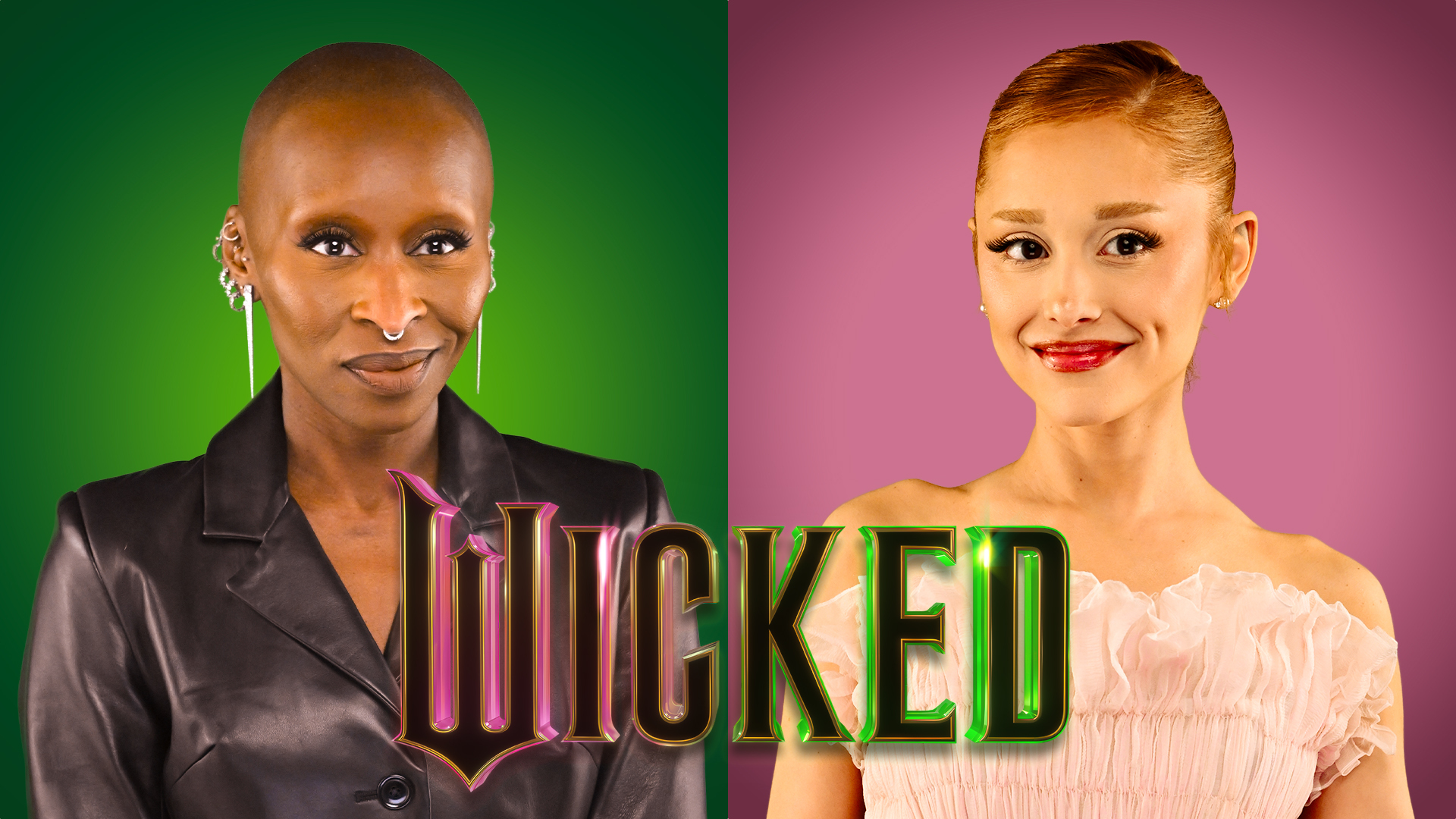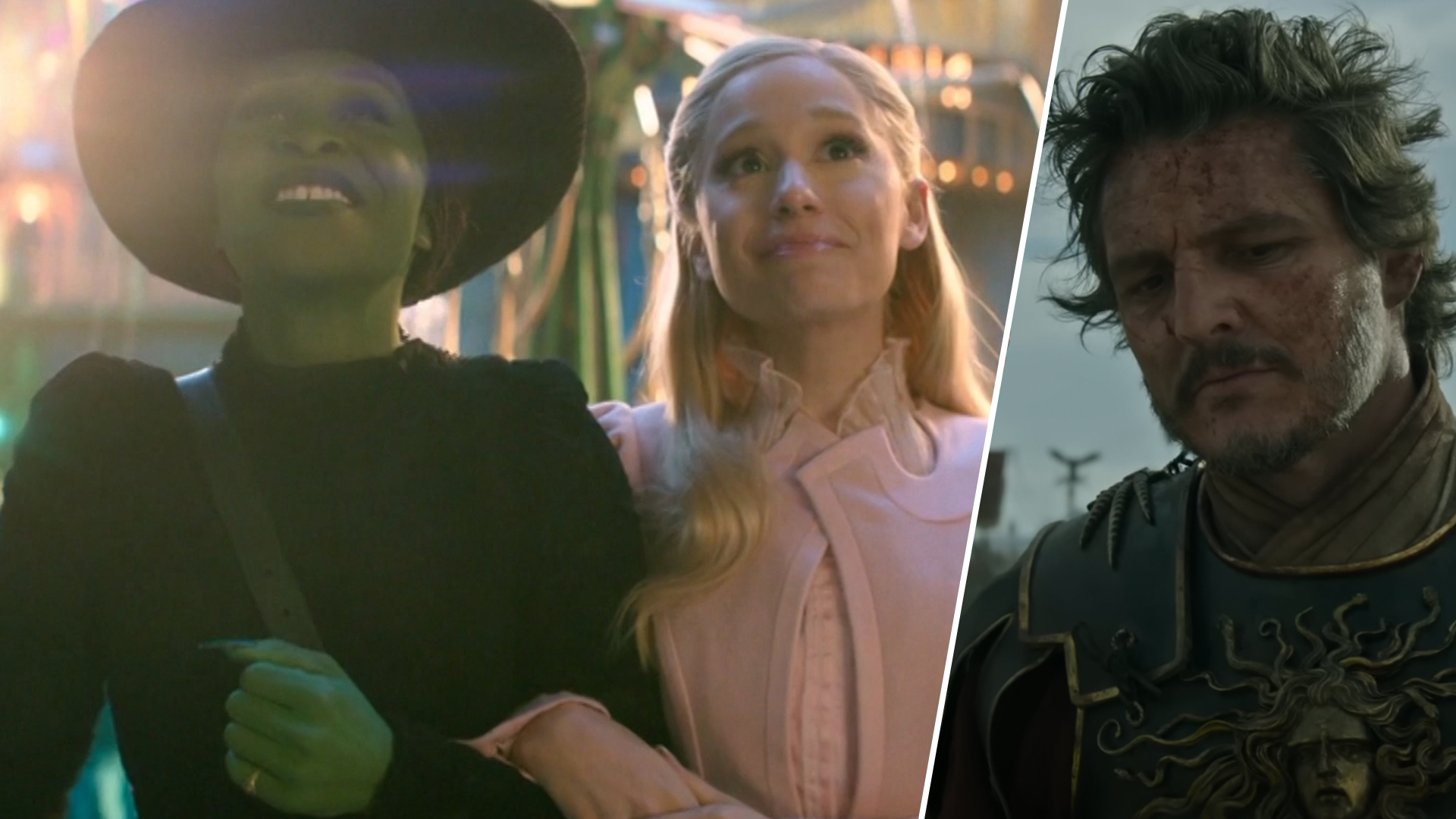
After Marissa Bode got the call asking her to play Nessarose in "Wicked," her parents had an unexpected reaction.
"They were so happy for me for all about three minutes," Bode, 24, tells TODAY. "And then they were like, 'We told you to get your passport.'"
"Wicked" was filmed in the United Kingdom, near London. She was offered the part in October 2022, and ideally, she would have headed to set the next day.
"Rehearsals had already started. Ethan (Slater) was already there, Ari (Grande) and Cynthia (Erivo) were already over there," Bode says.
We've got the news you need to know to start your day. Sign up for the First & 4Most morning newsletter — delivered to your inbox daily. Sign up here.
But there was a catch: She needed to order a passport. So after the initial excitement of getting cast wore off — a process that included leads Ariana Grande and Cynthia Erivo holding up a sign that read, "Will you be our Nessarose?" — Bode was "terrified," she says.
“After everything calmed down, I was like, ‘Hey, so, actually I don’t have my passport,’” she recalls. “I was so scared they were going to go with somebody else. But it worked out.”
After Bode got the document expedited, delaying her trip across the pond to film by only a few weeks, she came onto the set feeling "nervous and anxious."
"When I care about something so much like this, I want to put my all into it, and I want to remind them why they chose me," she says.
The Universal Pictures production marks Bode's film debut. (Universal Pictures is owned by TODAY.com's parent company, NBCUniversal.)
The Wisconsin native grew up performing in plays through middle school and high school and attended the American Musical and Dramatic Academy in Los Angeles to study acting.
Before she landed the part in "Wicked," Bode was working as an after-school art teacher and mentor. When the audition for Nessarose landed in her inbox, she put her all into it.
She says she feels "beyond privileged and lucky" to have been cast in "Wicked" just one year after graduating college.
"When you're not represented a lot and you don't see yourself, you still have — or at least I did have — a little bit of, 'I know what I'm capable of. I know that I can act. I know other disabled talent that can act and can model,'" she says. "But how much of the industry is willing to go for that and is willing to seek out disabled people and willing to listen? That was the one thing that I definitely bumped into."
Now, she's making history as the first actor who uses a wheelchair to portray Nessarose, Elphaba's sister, in "Wicked" throughout its more than 21-year run.
Making Nessarose her own
In “Wicked,” Nessarose is the younger sister of the green witch Elphaba, who eventually becomes the Wicked Witch of the West.
In the story, Nessarose uses a wheelchair due to complications from her birth, attributable to her mother eating milk flowers while pregnant to avoid having another green baby.
Much of Nessarose’s arc involves her asserting her independence — something Bode, who started using a wheelchair at age 11 after a car accident, can relate to. After the accident, she remembers having her parents come on class trips with her for “liability purposes,” a phrase she puts in quotes.
“I see all my other classmates be completely independent, and that was hard for me, because all I wanted was to have that independence,” she says.
Bode’s own upbringing allowed her to empathize with Nessarose, especially her situation at the beginning of the film. In “Wicked,” Nessarose is excited to start school at Shiz University on her own, away from her father and sister. But the sisters' father asks Elphaba to keep an eye on Nessarose, which eventually leads to Elphaba enrolling at Shiz, too.
“Although you love your family, you really do want to be on your own and to prove to yourself that you can, even though you already know that you can,” Bode says.
Elphaba’s journey to attending Shiz University in “Wicked” the movie is slightly different from the musical’s storyline. Originally, Elphaba is enrolled at Shiz from the beginning under her father’s orders to look after her sister. But in the 2024 film, the plan is for Elphaba to only be there while Nessarose gets settled in.
“Of course, all disabilities are different, and there are some people in wheelchairs that have a higher level of needs and higher level of caregiving. But I think this was a moment to showcase that I don’t have to be dependent on somebody,” Bode says.
In the musical, Nessarose and Elphaba’s relationship is complicated, in part, by Nessarose’s resentment of Elphaba’s powers, her ability to walk and the amount of attention she receives.
By splitting the movies in two, “Wicked” can slow down and explore a sweeter side to their relationship.
“There were pockets of time within the film itself when Elphaba is there where I am enjoying her presence because she’s my sister,” Bode says of her character.
Another small difference that can be seen as a big change in Nessarose’s storyline is how she tells Elphaba about the invitation she receives to the Ozdust Ballroom during the sweeping mid-film number “Dancing Through Life.”
Nessarose is able to “confide in her sister about wanting to go to this dance and have that be more of a special moment for them,” Bode says, “rather than really anxiously begging the whole time, ‘Please, just me.’”
Making history in and out of Oz
As the first-ever physically disabled actor to play Ness, Bode brings direct experience to the character.
“How I feel as a disabled person in a world that is not necessarily built for me, in a world where people just don’t understand or aren’t always fully educated on disability as a whole — I definitely took those with me and leaned that into my character,” Bode says.
Bode says she feels “over the moon” about the decision to cast a wheelchair user as Nessarose in the “Wicked” film.
“It’s not something I saw a lot of when I was growing up, and if I did, it was like for one special episode and you never saw the character again,” Bode says.
Bode credits some of the “little things” she brought to the character of Nessarose with making her performance feel authentic. For example — where and how Nessarose transported her bag.
“I made the adjustment of having it on the back of my chair,” she says.
Nessarose is also able to independently make her way around campus in the movie. “Thankfully, the University of Shiz is accessible,” Bode says. “There are ramps everywhere.”
And that alone sends a message, Bode says.
“There are still a number of campuses — I know because I have a number of disabled friends still going to college and even my partner who’s in college — that aren’t accessible,” Bode says. “I think that also sends a message to universities and just people as a whole as to why and how they should make their spaces more accessible.”
She hopes her character can help people “feel a lot less alone,” especially if they haven’t found their community yet.
But representation is “just the tip of the iceberg,” she notes.
“There’s so much more when it comes to fighting for accessibility and inclusion,” she says. “So I hope feeling less alone helps other disabled people and emboldens them to advocate for themselves and for others in the community.”
This story first appeared on TODAY.com. More from TODAY:




